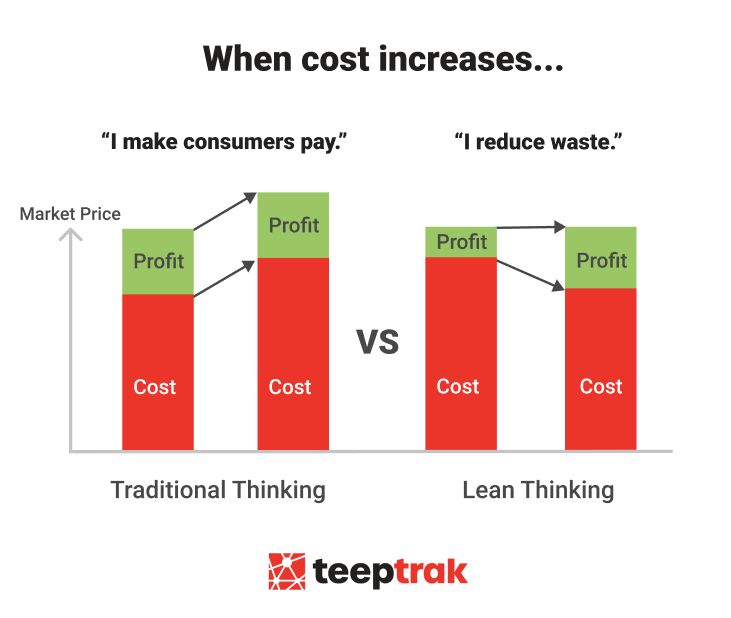FTC Investigates OpenAI: ChatGPT And The Future Of AI Regulation

Table of Contents
The FTC's Concerns Regarding OpenAI and ChatGPT
The FTC, tasked with protecting consumers from unfair or deceptive business practices, is increasingly focusing its attention on the implications of AI. In the case of OpenAI and ChatGPT, several key concerns are driving the investigation. These concerns relate directly to the potential for harm to consumers and underscore the need for robust AI regulation.
-
Concerns about potential bias and discrimination in ChatGPT's outputs: ChatGPT, trained on massive datasets of text and code, can inadvertently reflect and amplify existing societal biases. This can lead to discriminatory outcomes in various applications, from loan applications to hiring processes. Addressing AI bias requires careful curation of training data and the development of algorithms that actively mitigate bias. This is crucial for ensuring fairness and equity in AI systems.
-
Data privacy issues related to the vast datasets used to train ChatGPT: The training of large language models (LLMs) like ChatGPT requires enormous amounts of data, raising concerns about the privacy of individuals whose information may be included in these datasets. The FTC is likely scrutinizing OpenAI's data collection practices, ensuring compliance with data protection regulations like GDPR and CCPA. Protecting data privacy in the age of AI is paramount, requiring stringent data anonymization techniques and transparent data usage policies.
-
Potential for misuse of ChatGPT, including the generation of misinformation and deepfakes: ChatGPT's ability to generate human-quality text can be exploited for malicious purposes. The creation of convincing deepfakes and the spread of misinformation are significant concerns. Deepfake detection technology and improved content moderation strategies are crucial for mitigating this risk. The FTC's investigation may lead to stronger regulations around the detection and prevention of AI-generated misinformation.
-
Lack of transparency in OpenAI's algorithms and decision-making processes: The complexity of LLMs like ChatGPT makes it challenging to understand precisely how they arrive at their outputs. This lack of algorithmic transparency raises concerns about accountability and the potential for unforeseen consequences. The FTC is likely pushing for greater transparency in OpenAI's algorithms and decision-making processes, promoting explainable AI (XAI) and ensuring that OpenAI can justify its actions.
The Broader Implications of the FTC Investigation for AI Development
The FTC's investigation into OpenAI has significant implications for the broader AI industry. It signals a growing global trend toward increased regulation of AI technologies and data practices.
-
Increased scrutiny of AI development practices by regulatory bodies worldwide: The FTC's actions are likely to embolden other regulatory bodies globally to increase their scrutiny of AI development practices. This could lead to a more harmonized approach to AI regulation across different jurisdictions.
-
Potential for stricter regulations on data collection and usage in AI models: Expect stricter regulations on data collection and usage, particularly regarding sensitive personal information. This could necessitate significant changes in how AI companies obtain, process, and utilize data for training their models.
-
The need for increased transparency and accountability in AI algorithms: The investigation highlights the urgent need for greater transparency and accountability in AI algorithms. This push for explainable AI will influence future AI development, prompting developers to build more understandable and auditable systems.
-
The development of ethical guidelines and best practices for AI development: The FTC's actions will catalyze the development and adoption of ethical guidelines and best practices for AI development. This includes the incorporation of fairness, accountability, transparency, and privacy principles into the design and deployment of AI systems.
ChatGPT's Specific Vulnerabilities and the Need for Regulatory Oversight
Large language models like ChatGPT present unique challenges due to their ability to generate vast amounts of text quickly. This capability, while impressive, necessitates careful regulatory oversight.
-
The potential for generating harmful or misleading content: ChatGPT can generate content that is offensive, harmful, or misleading. This necessitates robust content moderation mechanisms and potentially legal frameworks to address the dissemination of such material.
-
Difficulty in detecting and mitigating biases embedded within the model: Even with efforts to mitigate bias, these models can still reflect and amplify existing societal biases. Continued research and development of bias detection and mitigation techniques are crucial.
-
The challenges of ensuring the accuracy and reliability of information generated by ChatGPT: The information generated by ChatGPT is not always factually accurate, posing challenges for users who rely on it for information. Fact-checking mechanisms and clear disclaimers are necessary.
-
The potential for misuse in malicious activities: The potential for malicious use, such as generating phishing emails or spreading propaganda, necessitates safeguards and regulatory interventions.
The Future of AI Regulation: Lessons from the FTC's Investigation
The FTC's investigation into OpenAI provides valuable lessons for the future of AI regulation. It emphasizes the need for a balanced approach that encourages innovation while protecting consumers and society.
-
Different regulatory approaches across various jurisdictions: Expect to see varying regulatory approaches across different countries, reflecting diverse legal and cultural contexts. International cooperation will be key to establishing consistent global standards.
-
The balance between fostering innovation and protecting consumers: Finding the right balance between fostering innovation and protecting consumers is a critical challenge. Regulations should aim to avoid stifling innovation while ensuring consumer safety.
-
The role of self-regulation by companies like OpenAI: Self-regulation by companies can play a crucial role, but it needs to be complemented by robust external oversight to ensure accountability.
-
The importance of international cooperation in AI regulation: Effective AI regulation necessitates international cooperation to address the global nature of AI technologies and prevent regulatory arbitrage.
Conclusion
The FTC OpenAI ChatGPT investigation is a watershed moment. It underscores crucial concerns about AI bias, data privacy, and the potential for misuse of powerful AI technologies like ChatGPT. The investigation highlights the urgent need for a comprehensive and balanced approach to AI regulation, one that fosters innovation while protecting consumers and society. The FTC OpenAI ChatGPT AI Regulation debate is ongoing, and staying informed about its developments is crucial. Participate in the discussion and help shape the future of this transformative technology. The future of responsible AI development depends on our collective engagement.

Featured Posts
-
 Us Armys Right To Repair Policy Enhancing Equipment Readiness And Reducing Costs
May 18, 2025
Us Armys Right To Repair Policy Enhancing Equipment Readiness And Reducing Costs
May 18, 2025 -
 Netflix Top 10 Shakeup Romance Drama Loses To True Crime Docuseries
May 18, 2025
Netflix Top 10 Shakeup Romance Drama Loses To True Crime Docuseries
May 18, 2025 -
 Ta Ploysiotera Ellinika Onomata I Lista Toy Forbes 2024
May 18, 2025
Ta Ploysiotera Ellinika Onomata I Lista Toy Forbes 2024
May 18, 2025 -
 Fakt W Onet Premium Najlepsza Oferta
May 18, 2025
Fakt W Onet Premium Najlepsza Oferta
May 18, 2025 -
 Emergency Response To Subway Stabbing Near Brooklyn Bridge In Nyc
May 18, 2025
Emergency Response To Subway Stabbing Near Brooklyn Bridge In Nyc
May 18, 2025
